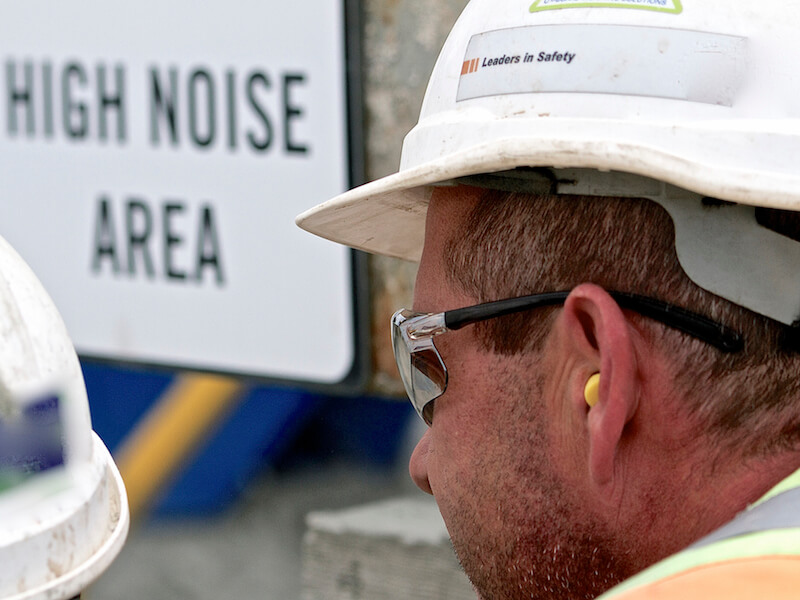
A noisy workplace isn’t all that great for your ears (or your focus, for that matter). Even modest noise, when experienced for many hours a day, can begin to weaken your hearing health. That’s why it’s pretty smart to start asking questions like, “what level of hearing protection should I use”?
It’s not common knowledge that several levels of hearing protection are available. But it makes sense when you stop to think about it. A truck driver won’t require the same amount of protection that a jet engine mechanic will.
Hearing Damage Levels
The general rule of thumb is that 85 decibels (dB) of sound can begin harming your ears. We’re not really used to thinking about sound in decibels (even though that’s how we calculate sound – it just isn’t a number we’re used to putting into context).
When you’re sitting in your car in city traffic, that’s about 85 decibels. No biggie, right? Actually, it’s rather significant. It becomes a big deal after numerous hours. Because it isn’t just the loudness of the noise that you need to pay attention to, it’s how long you’re exposed.
Common Danger Zones
It’s time to consider hearing protection if you are exposed to noise at 85 dB or louder for 8 hour days. But that isn’t the only threshold you need to be aware of. If you’re exposed to:
- 90 dB (e.g., lawnmower): injury will start to occur to your ears if you’re exposed to this volume of noise for 4 hours a day.
- 100 dB (e.g., power tools): Your ears will be damaged when exposed to this noise level for 1 hour a day.
- 110 dB (e.g., leaf blower): Injury to your hearing takes place after 15 minutes of exposure to this noise level.
- 120 dB (e.g., rock concert): If you are exposed to this noise level for any amount of time, your hearing can be damaged.
- 140 dB (e.g., jet engine): This level of noise will lead to immediate damage and most likely pain to your ears.
When you’re going to be exposed to these levels of noise, utilize hearing protection that will bring the decibels in your ears down below 85 dB.
Find a Comfortable Fit
The effectiveness of hearing protection is measured by something called a Noise Reduction Rate, or NRR. Outside sound will become progressively quieter the higher the NRR.
It’s really important that you select hearing protection with a high enough NRR to effectively protect your hearing (and your workplace will typically make suggestions about what level will be appropriate).
Comfort is also an important factor to take into consideration. It’s very important that your hearing protection is comfortable to wear if you want to keep your hearing safe. Why? Because if your hearing protection isn’t comfortable, you’re not going to wear it.
What Are my Hearing Protection Options?
There Are Basically Three Options:
- Earplugs that stay just outside of the ear canal.
- Earplugs that go within the ear canal
- Earmuffs.
Each form of protection has advantages and disadvantages, but personal preference is frequently the deciding factor. Earmuffs are the best choice for people whose ears are irritated by earplugs. For other people, the ability to put earplugs in and leave them in is a better solution (of course, at the end of the workday you will need to take them out for a good cleaning).
Consistently Use Protection That Works Best For You
Any laps in your hearing protection can lead to damage, so comfort is an important factor. If earmuffs are scratchy and uncomfortable you’re more likely to take them off for short periods and that can have a negative effect on your hearing over time. This is why hearing protection that you can leave in for the entire workday is the best choice.
Investing in the level of hearing protection you require can help keep your ears healthy and happy.
Call Today to Set Up an Appointment
